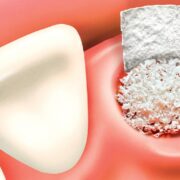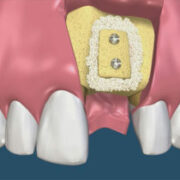We are pleased to have you visit Royal Dental Clinics. In this enlightening article, we will discuss the issue of dental implants and the factors that patients who suffer from autoimmune illnesses or chronic pain should take into account before undergoing the procedure. People who have lost teeth and wish to restore their smile as well as their oral functioning are good candidates for dental implants, which are an excellent option. If, on the other hand, you are struggling with an autoimmune illness or chronic discomfort, there are a few things you should think about before deciding whether or not to have teeth implants. Join us as expert dentist Dr. Chirag Chamria, who will be shedding light on this vital issue, discusses it with us.
Understanding Implants and Chronic Disease
Teeth implants are artificial tooth roots that are surgically placed into the jawbone. They provide a strong foundation for replacement teeth, which are custom-made to match your natural teeth. Unlike dentures or bridges, dental implants are a permanent solution for missing teeth that look and feel like real teeth.
If you have a chronic illness, you may be concerned about the safety and effectiveness of dental implants. It’s essential to understand that dental implants are generally safe for people with chronic illnesses, but it’s crucial to work with a dental implant specialist who has experience working with patients with your specific condition.
Benefits of Teeth Implant
Improved oral function: They provide stability and strength, allowing individuals to chew, speak, and bite properly. This can be especially beneficial for people with chronic illnesses who may already experience difficulties with oral function.
Enhanced nutrition: Chronic illnesses can often lead to dietary restrictions or difficulties in consuming certain foods. Dental implants can help restore the ability to eat a wide variety of foods, including those that require more chewing and biting force.
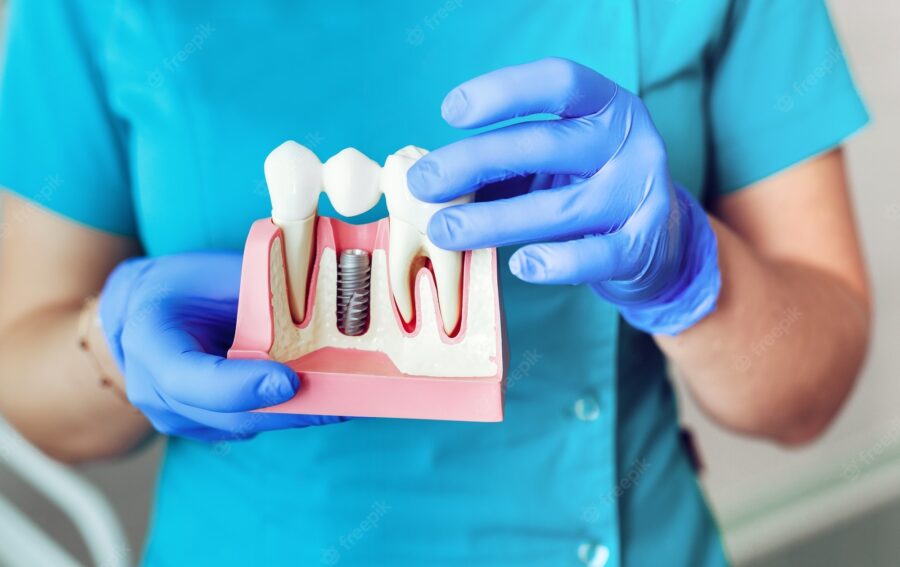

Preservation of jawbone integrity: Chronic illnesses or certain medications used to manage them may lead to bone loss in the jaw. Dental implants help stimulate the jawbone, preventing further deterioration and maintaining its strength and density.
Improved self-esteem and confidence: Chronic illnesses can take a toll on a person’s self-esteem and overall well-being. Teeth implant provide a natural-looking and permanent solution for tooth loss, which can significantly enhance a person’s smile and restore their self-confidence.
Long-lasting and durable solution: Dental implants are designed to be a long-lasting solution for tooth loss. With proper care and regular dental check-ups, they can last for many years, providing a reliable and durable option for individuals with chronic illnesses.
Risks and Considerations for Chronic pain
While dental implants can offer significant benefits, there are also risks and considerations to be aware of when considering dental implants, especially for individuals with chronic illnesses. It’s important to discuss these factors with both your dentist and your healthcare provider to make an informed decision. Here are some potential risks and considerations:
Healing and infection risks for chronic disease
Individuals with chronic illnesses may have a compromised immune system, which can affect the healing process after dental implant surgery. Slower healing or an increased risk of infection may be a concern. Your healthcare provider and dentist will need to evaluate your specific health condition and assess the risk factors associated with implant surgery.
Medications for Chronic pain
If you’re taking medications to manage your chronic illness, it’s important to inform your dentist about them. Some medications can interfere with the dental implant process or increase the risk of complications. Your dentist and healthcare provider can work together to determine the best course of action and any necessary adjustments to your medications.
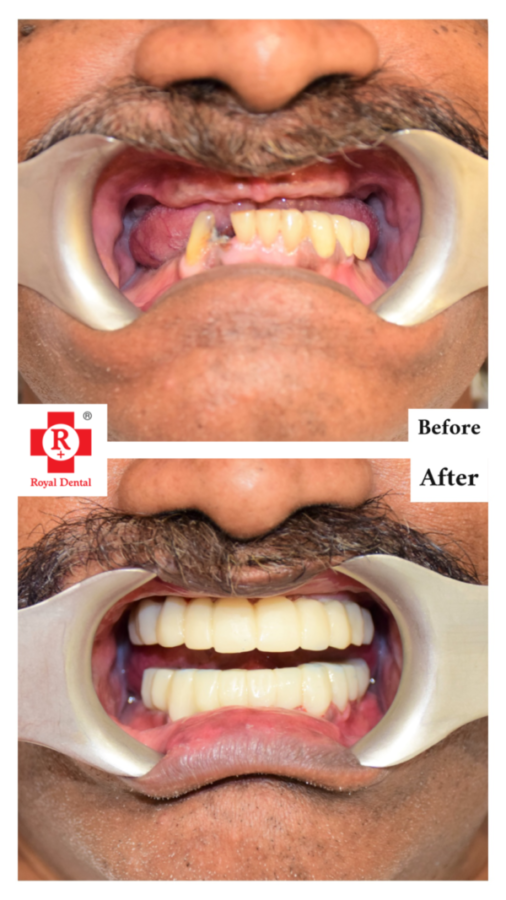

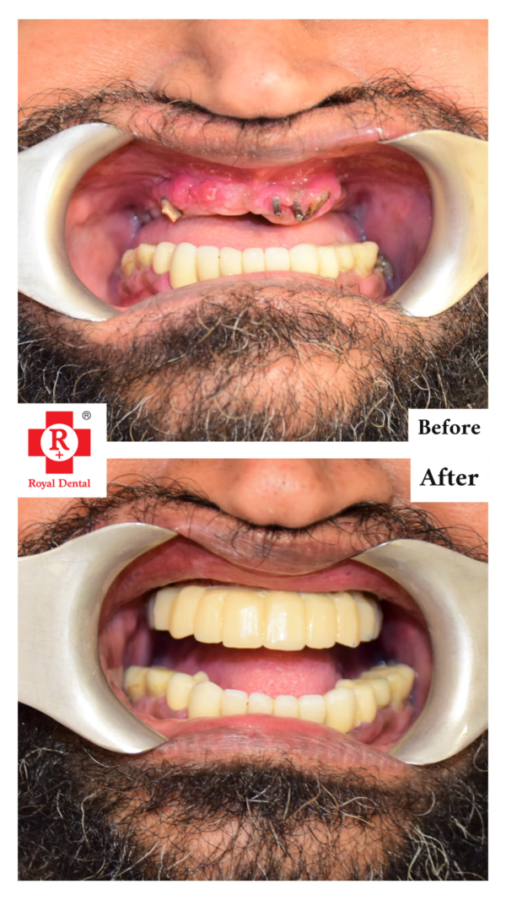
Systemic health complications
Certain chronic illnesses, such as diabetes or autoimmune disorders, can affect the healing process and increase the risk of complications associated with dental implant surgery. It’s crucial to have a comprehensive understanding of your overall health condition and how it may impact the success of dental implants.
Maintenance and oral hygiene
Proper oral hygiene is crucial for the long-term success of dental implants. Individuals with chronic illnesses may face challenges in maintaining optimal oral hygiene due to physical limitations or medication side effects. It’s important to discuss these concerns with your dentist and develop a personalized oral hygiene plan that accommodates your specific needs.
Pre-Implant Evaluation and History of Chronic Disease
Prior to dental implant surgery, a thorough evaluation of the patient’s medical history is essential, particularly for those with autoimmune disorders or chronic pain. Detailed discussions with the patient regarding their condition, medications, and any ongoing treatments help the dental team make informed decisions. Dr. Chamria emphasizes the importance of disclosing all relevant medical information to ensure patient safety and prevent potential complications.
Tips: Successful Dental Implant Procedure and Recovery
Following your dental implant surgery, it’s crucial to take care of yourself to ensure a successful recovery. People with chronic illnesses may need to take additional precautions during the recovery period, such as monitoring their blood sugar levels or adjusting their medication regimen. Some tips for a successful dental implant procedure and recovery include:
✦ Follow your dental implant specialist’s instructions for aftercare, including any medications prescribed.
Rest and avoid strenuous activity for the first few days after surgery.
✦ Eat soft foods and avoid chewing on the implant site.
Keep the implant site clean by gently brushing and flossing around the area.
✦ Attend all follow-up appointments with your dental implant specialist to monitor your progress and identify any potential issues.
Frequently Asked Questions
Q. Is it safe to get dental implants with a chronic pain?
A. Dental implants are generally safe for people with chronic illnesses, but it’s important to work with a dental implant specialist who has experience working with patients with your specific condition.
Q. How long does it take to recover from dental implant surgery?
A. Recovery time can vary depending on the individual and their specific condition. However, most people can return to normal activities within a few days to a week after surgery.
Q. Can I eat normally after getting dental implants?
A. Yes, after your implants have healed, you can eat normally. However, it’s important to avoid hard, crunchy, or sticky foods that can damage the implant or pull it out of place.
Conclusion:
Even for those who suffer from autoimmune diseases or have a constant pain condition, dental implants may be a viable option for replacing lost teeth because of their effectiveness. Nevertheless, it is essential for patients to collaborate closely with their dental team and other healthcare professionals in order to ensure that they get a thorough treatment plan that takes into consideration the specifics of their situation. Patients are able to make educated choices, achieve successful results, and prioritize their overall health and well-being when they take into consideration the elements that are mentioned by Dr. Chirag Chamria at Royal Dental Clinics. Keep in mind that maintaining your oral health is a group effort, and we are here to provide you with help at every stage of the process.


